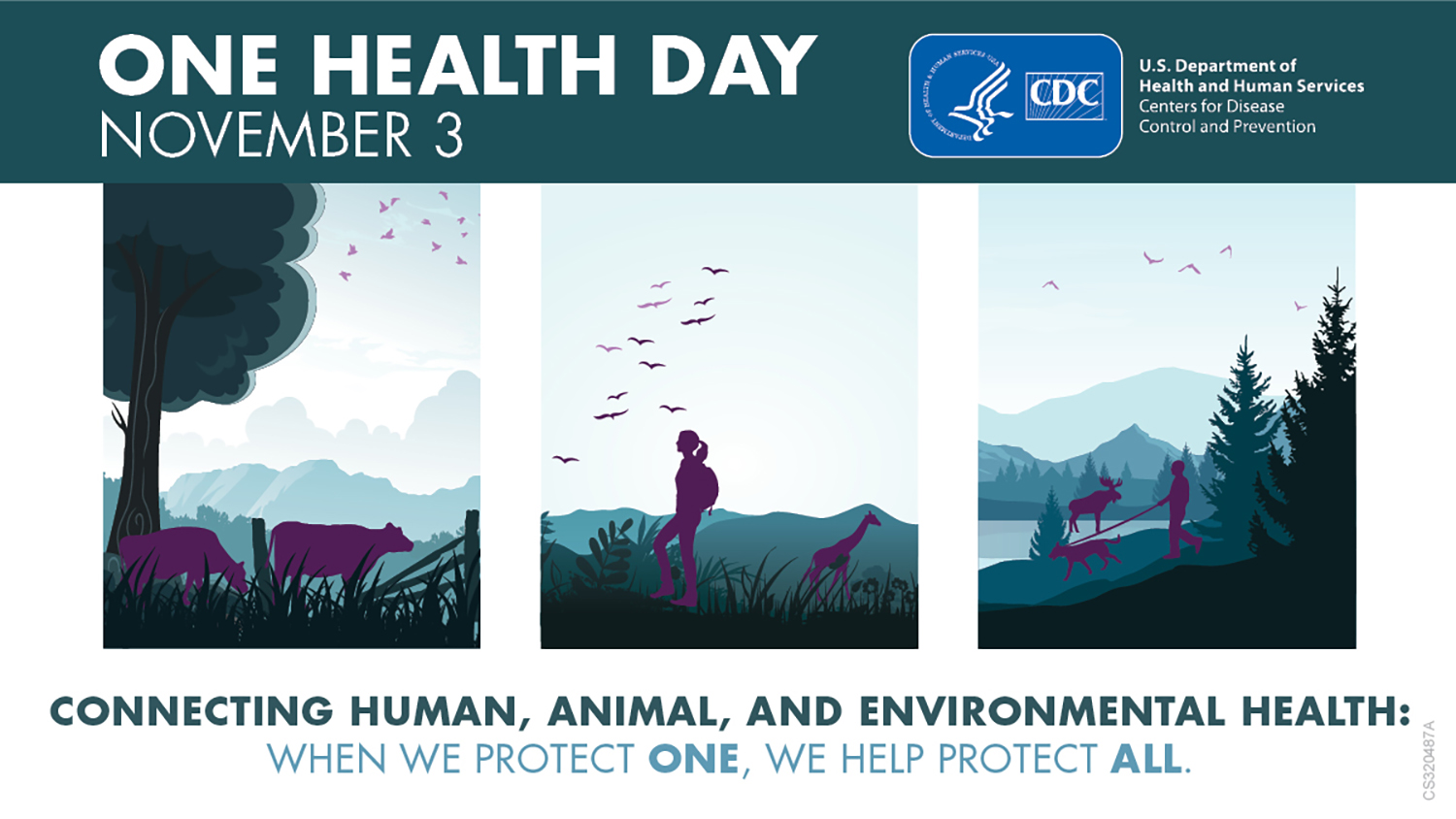This week we celebrated global One Health Day together with Louisiana One Health in Action (LOHA), an organization founded by Amy LeBoeuf after her son was diagnosed with bartonellosis after getting a tiny scratch from their cat. People and their families who have been affected by flea- and tick-borne pathogens are at the forefront of promoting One Health awareness in their own communities. This past weekend, LOHA hosted a very successful Walk & Wag for One Health, with proceeds going to the Bartonella Research Project at NC State University’s College of Veterinary Medicine. The NCSU Bartonella Project supports research initiatives aimed at better understanding Bartonella species infections and their clinical importance for animal and human health. Congratulations to Amy and her community for the great work they are doing in the interests of One Health!!
The One Health Commission points out that celebrating One Health Day in 2020 and 2021 has been “especially poignant” due to the COVID-19 pandemic. Countless articles describing the novel coronavirus and its suspected origins have led to a better global understanding of how our wellbeing is intimately connected to the health of the environment and our interactions with animals. This has not only sparked debate about implementing One Health ideals in legislation, but it has also led to researchers developing better methods for tracking animal habitats and even new university training programs for the younger generations of students in science and medicine. One Health now has a necessary place of prominence on the public health radar.
As a K12 educator for 20 years and Chair of the US One Health Education Team, I have realized that what happened to my son could happen to any child, and that students are not being taught about vector-borne diseases and zoonoses nor how to protect themselves. Students need a more comprehensive understanding of health. The National Health Education Standards do not explicitly include education about vector-borne disease, zoonoses, or strategies to prevent them. Yet education is the key to preventing stories like my son’s. Including education about One Health topics and concepts across curricula would help develop students who inherently understand the connections of human, animal, and ecosystem health which help keep students healthy, think critically, and prepares them to be future leaders and responsible citizens in our complex and ever-changing world.Amy LeBoeuf, LOHA Founder, US One Health Education Team Chair
The new initiatives for One Health that have received funding and institutional support since COVID-19 hit often include developing educational materials and curricula for children. The coming generation is going to be much more aware of One Health. This week also sees the twenty-sixth Conference of the Parties to the United Nations Framework Convention on Climate Change, showing just how aware the next generation is of the ways issues that affect the environment are connected to how the people and livestock in their communities live.
Where organizations like Louisiana One Health in Action were ground-breakers, more people and organizations have become aware of the importance of One Health. You can join them by finding events around the world that recognize One Health here. These events occur throughout the year and not just on One Health Day.
Galaxy Diagnostics is fortunate to be based in North Carolina, near the One Health Commission, using technology our founders developed over many years at NC State College of Veterinary Medicine. In the Research Triangle Park environment, we built upon this recognition of the importance of One Health by bringing important innovations in human and animal health testing for Bartonella and other flea- and tick-borne pathogens to market.
Bartonella species are bacteria transmitted to people via exposure to fleas, ticks, lice, biting flies, and other suspected vectors or by animal scratches. Although cat scratch disease (B. henselae infection) and other acute Bartonella infections are recognized in medical textbooks, the associations with different chronic disease states is still poorly recognized. Similar to “COVID-19 long-hauler syndrome”, a subset of bartonellosis patients report mild to severe multi-system symptoms months to years after exposure occurs. Our “Understanding Bartonella – A One Health Perspective” webinar hosted by the One Health Commission in 2015 describes this clinical phenomenon in further detail.
Join us as we celebrate One Health Day 2021 and honor organizations like LOHA that are building awareness and education in their local communities and fundraising to advance research for bartonellosis and other important emerging infectious diseases.



